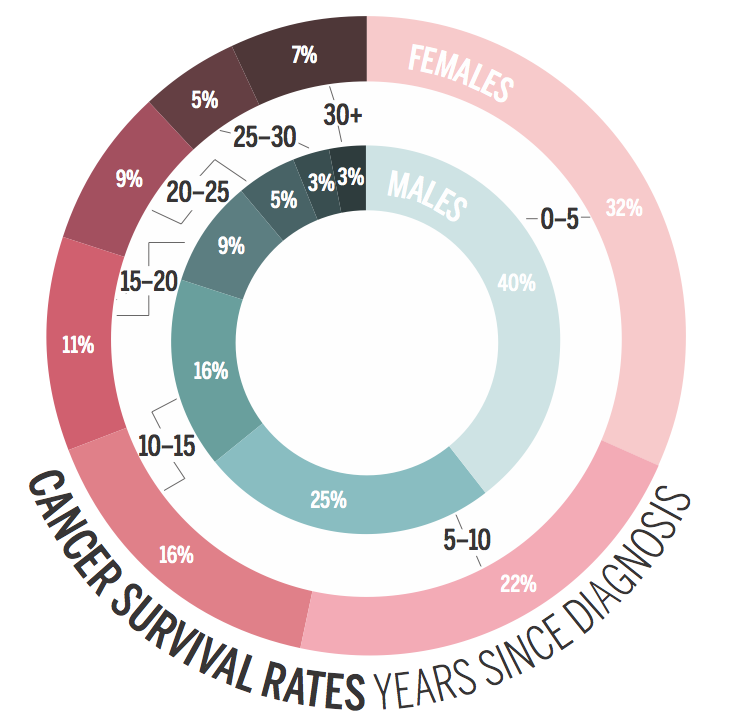
A team of researchers from the Yale School of Public Health and the Yale Cancer Center published a study which sheds light on the needs of cancer survivors nearly a decade out from their initial diagnosis.
The study, published in January in the Journal of Cancer Survivorship, found that cancer survivors surveyed at least nine years post-diagnosis expressed interest in the information provided in a Survivorship Care Plan. The SCP is a document provided after completing cancer treatment that summarizes both the treatment and information about future cancer screening, long-term treatment side effects, healthy lifestyle habits and available resources for financial and psychosocial support. According to the researchers, the survey results affirmed that there is an expressed, unmet need for the type of information summarized in an SCP among cancer survivors who have never received one.
“Think of [the SCP] as a sort of bookend,” said Tara Sanft, study co-author and professor at Yale School of Medicine. “You come in with your cancer diagnosis, and then you go through all this treatment, and at the very end, [the SCP] summarizes all the stuff that happened to you and all the things you need to know about it going forward.”
All of those surveyed had been diagnosed nine or more years ago, before it was standard procedure for health care providers to distribute SCPs, and therefore had never received the information typically included in an SCP, Sanft said.
Despite completing treatment, the majority of subjects still wanted more information about their health choices, said study co-author Brenda Cartmel, senior research scientist and lecturer in epidemiology.
“Survivorship … never really goes away,” Sanft said. “It’s a part of who you are after you’re done [with treatment], and … there are still things survivors wonder about years and years later.”
The cancer survivors surveyed expressed the greatest interest in personalized, printed information, such as a magazine or other publications. Less directly tangible information sources such as using an interactive CD were less popular, with the least popular information source being an online support group, according to the study. This, however, may have been a result of generational differences, as most patients surveyed were around 65 or 70, Cartmel said. Cartmel noted that future generations of cancer survivors might not necessarily have this preference.
According to the American Cancer Society, in 2006 the Institute of Medicine recommended that every cancer patient receive an individualized SCP that includes guidelines for monitoring and maintaining their health. While current cancer patients are provided an SCP after completing treatment as part of standard practice, the study makes a case for providing one retroactively to long-term survivors who had never received one, Sanft said.
“To me, this study raises awareness that all survivors out there deserve a Survivorship Care Plan, regardless of when they were diagnosed,” Sanft said.
The researchers said that in the future they want to determine whether SCPs successfully satisfy the information needs of cancer survivors.
“We’re confirming that the Survivorship Care Plan is going to address … the information needs that the long-term cancer survivorship patients are expressing,” Cartmel said.
In 2012, the American Cancer Society, in collaboration with the National Cancer Institute, estimated that there were 13.7 million cancer survivors alive in the U.S. They also estimated that this number will grow to almost 18 million by 2022.







